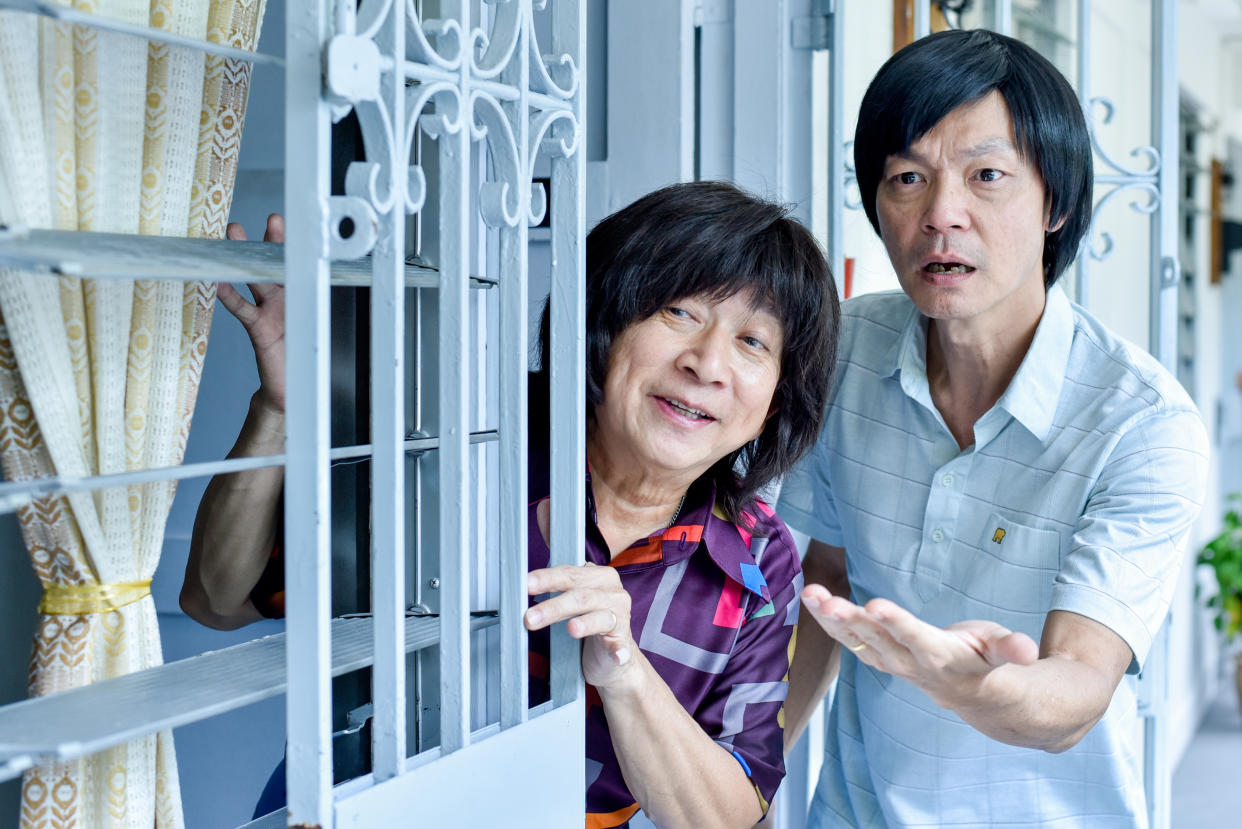Review: Jack Neo's Diam Diam Era bristles with anger at language policy

Rating: PG13
Length: 107 minutes
Director: Jack Neo
Cast: Mark Lee, Richie Koh, Danny Lee, Henry Thia, Meixin Macy, Yap Huixin, Regina Lin, Suhaimi Yusof, Silvarajoo Prakasam, Wang Lei
Release date: 26 November 2020 (Singapore)
1 out of 5 stars
SINGAPORE — Jack Neo is back with the third instalment of his Long Long Time Ago series of movies, The Diam Diam Era, this time set in ’80s Singapore.
If you’re surprised that Neo isn’t releasing this movie during the usual Chinese New Year period, that’s because it’s only part one of a two-part series. (Read our review for part two here.)
The second part of The Diam Diam Era is presumably scheduled for next year’s Chinese New Year although with the ongoing COVID-19 pandemic, who can say it would go according to plan?
While the first two Long Long Time Ago movies focused on the kampung lives of Singaporeans in the ’60s and ’70s, Diam Diam shifts its attention to the following decade that saw the elevation of English as the lingua franca of the country and the closure of Chinese-medium schools.
Two new characters are the main focus among an ensemble cast – Shun Fa (Richie Koh), son of Zhao Di (Aileen Tan), who died in the previous movie; and Yong Xin (Danny Lee), son of Ah Kun (Mark Lee).
Cousins Shun Fa and Yong Xin are set for different paths in life: Yong Xin performs well academically and eventually receives a Singapore Armed Forces scholarship, whereas Shun Fa does poorly because of his Chinese-educated background.
The main conflict in the movie comes from the clash between the English-educated elite, personified by Yong Xin, and the Chinese-educated Shun Fa and Ah Kun, who are struggling due to the national policy to abolish Chinese-medium education.
Jack Neo’s vernacular comedy should appeal to his fans again - even if you’re not a fan, you’ll still find yourself chuckling at times. One of the better jokes in the film is Henry Thia’s meta reference to his resemblance in looks to a certain former transport minister. Give it to “Hui Ge” – as the the veteran comedian is known among his fans – he is funny in an endearing manner even if he is appearing in a cinematic disaster.

Regrettably, Neo’s characters, dialogue, and plots are on-the-nose and unbelievable, as has always been his preachy style of filmmaking. You can imagine Jack Neo’s pontificating voice as his characters rail at the government for sidelining Chinese-educated people.
Mark Lee turns in a grating one-note performance where he constantly rants about injustices such as the language policy to his family and friends; I really wish he would just diam (Hokkien for keeping quiet).
One jarring point was how the elitist characters with their supposed fluency in the first language are conversing in broken English. Malaysian heartthrob Danny Lee struggles with spoken English on screen, even though he is portrayed as a scholar who excels in the education system. Mr Neo, couldn’t you get anyone to check your English dialogue for basic grammatical mistakes? Even the film’s production is tainted by English subtitles riddled with spelling mistakes.
As is Jack Neo’s style, Diam Diam is not so much a movie, rather it is a collection of loosely connected skits. The narrative lurches from vignette to vignette with no coherent storyline.
You’d be surprised when the movie rolls out a teaser at the end for its sequel, because Shun Fa and Yong Xin’s stories never get resolved before the film segues into Ah Kun’s ambitions to join opposition politics as a set-up for the next movie.
My recommendation, if you wish to see a nuanced portrayal of the struggles of Chinese-educated Singaporeans, is to watch The Songs We Sang on Netflix, a 2015 documentary about the history of Singapore’s xinyao music scene.
One small blessing is that the movie is not riddled with blatant product placements in every scene, as is characteristic of Jack Neo films. Perhaps the director has realised such annoying placements should have been cut a long, long time ago.



